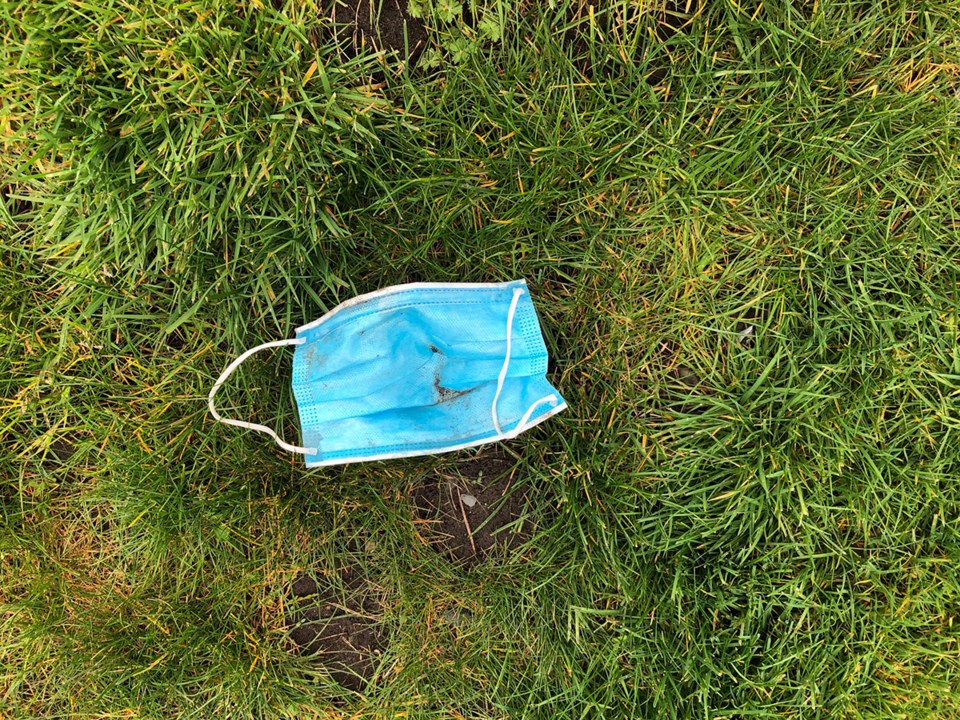Gloves, face masks and disposable wipes can all be used to defend against COVID-19, but they’re wreaking havoc on Metro Vancouver’s sewage system.
The spike in personal protective equipment (PPE) and wipes being flushed down toilets since the start of the COVID-19 pandemic is clogging pipes and causing treatment problems at the region’s five wastewater plants, including the two in Richmond at Iona and the end of Gilbert Road.
“Most of these products are quite strong, and they simply don’t dissolve in water like toilet paper does, and as a result, they clog up pumps,” Richard Stewart, chair of Metro Vancouver’s Liquid Waste Committee and Mayor of Coquitlam, told the Richmond News.
“The so-called flushable wipes are notorious for clogging up pumps,” said Stewart. “And you can imagine what happens when rubber gloves, latex gloves, masks, get put in the toilet and flushed. They seem to disappear, but they make a mess in the plumbing, the pipes and the pumps.”
Individual workers then have to go in and dismantle pumps to remove raw sewage in order to get at the clog of PPE and wipes — in the middle of a pandemic, said Stewart,
“If someone thinks their PPE is contaminated, the most selfish thing they can possibly do is leave it for someone else to deal with.”
Those clogs also have a financial impact on taxpayers and home owners, said Stewart.
“There’s no question in my mind that taxpayers are going to feel this as just one more of the hits involved with this pandemic — financial burdens that in this case could have been entirely avoided.”
Plumbing calls to condo and townhouse projects are also on the rise, he said, as the first kilometre of pipe that the wastewater goes through is private, and owned by residents – leaving the stata or individual residents on the hook for thousands of dollars of repairs.
Stewart cited Tuesday’s report on strata corporations, noting they face enormous insurance challenges, many of which are related to water.
PPE that has been littered on streets and other public places, as has been seen in Richmond, is also a plague as those items can end up in storm drains which empty into creeks, the Fraser River or the ocean.
“I’ve seen latex gloves that have been chewed up by traffic…and those bits of plastic will end up in fish, and we know that’s an enormous problem for birds of prey and the entire food chain in the ocean,” said Stewart.
Iona plant replacement likely tertiary
The current Iona treatment plant only treats water at a primary level – the lowest level of treatment – meaning that only about 50 per cent of contaminants, microplastics and chemicals are filtered out before the water goes into the river or ocean.
That plant, which is due to be upgraded, serves around 600,000 residents in Vancouver, the UBC Endowment Lands, and parts of Richmond and Burnaby.
The Liquid Waste Committee is currently working out the plan for the Iona facility upgrade, said Stewart, and “it looks like it’s heading towards being a tertiary plant.”
That’s the highest level of wastewater treatment available, and would remove the vast majority of microplastics and other contaminants, he said.



